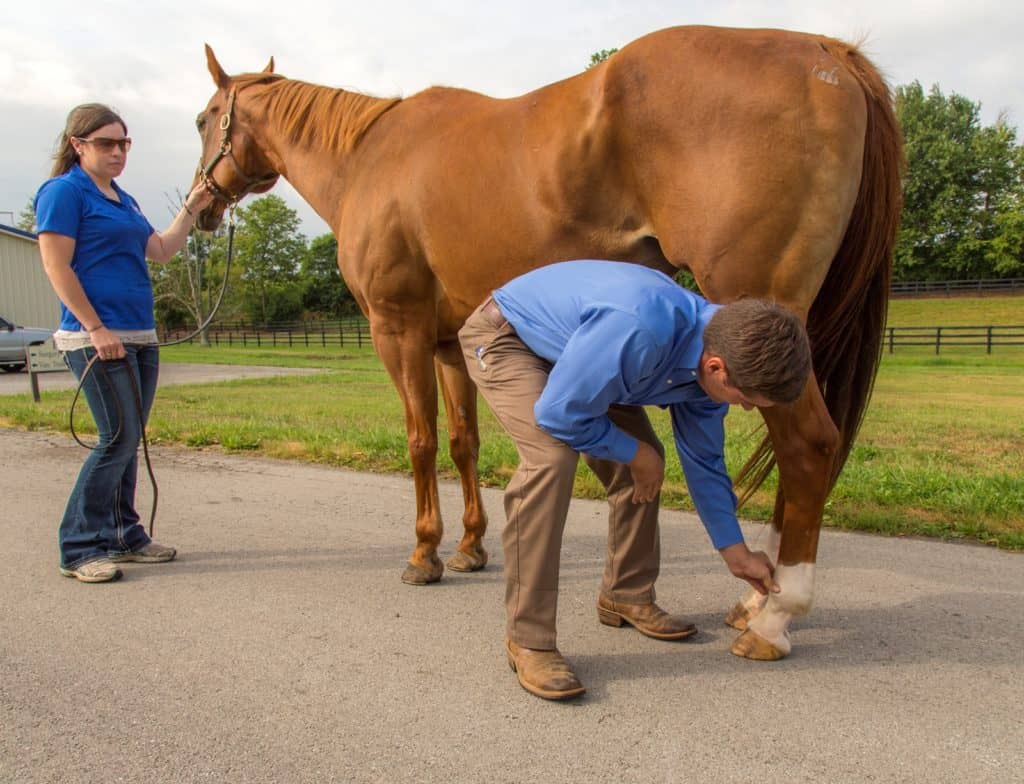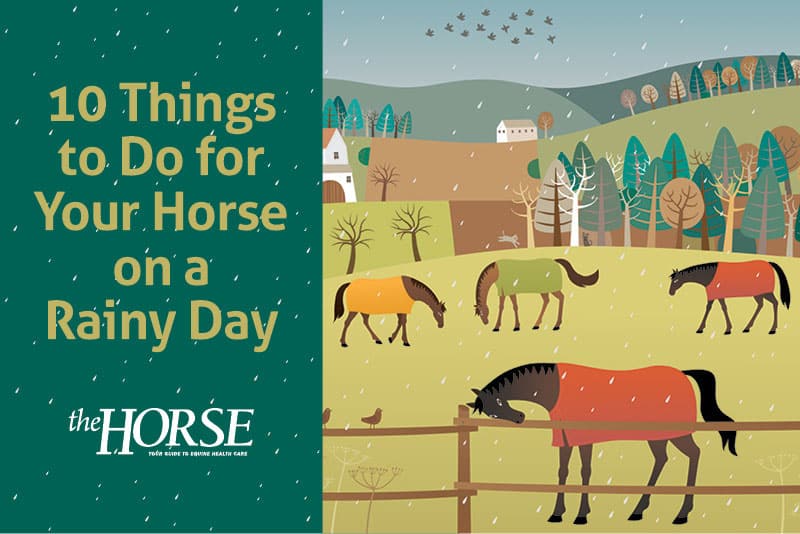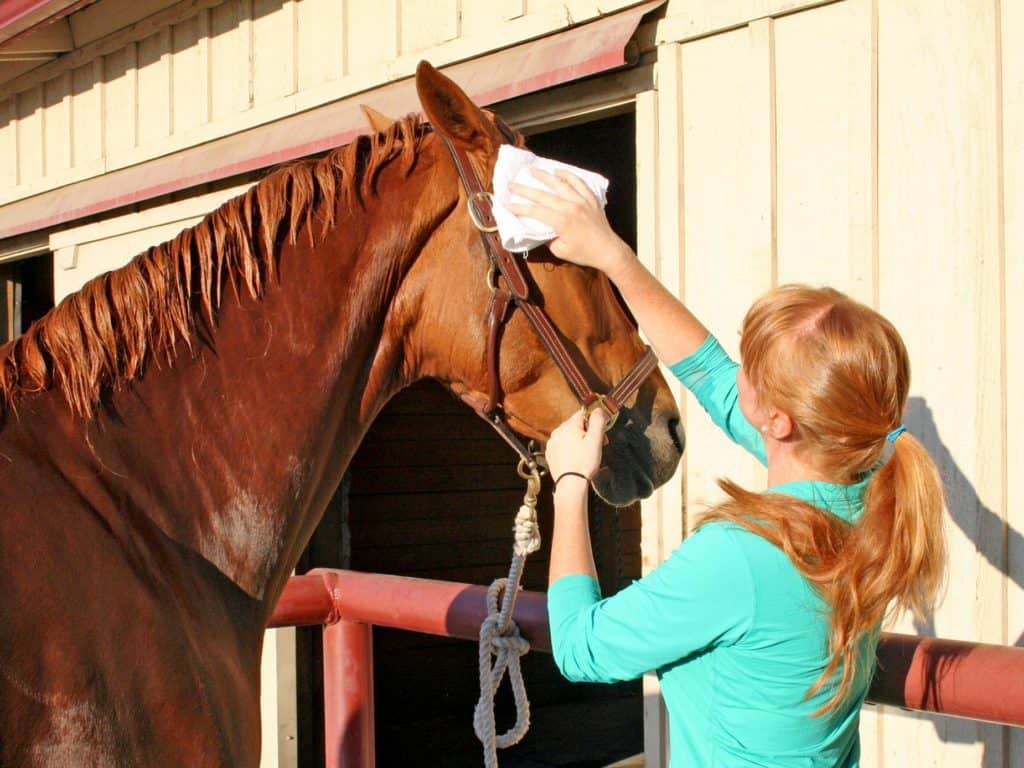
Infographic: Signs of Stress in Horses
Learn about the common signs your horse might show when under stress and ways to mitigate the possible causes.

Learn about the common signs your horse might show when under stress and ways to mitigate the possible causes.

Beginning Jan. 1, 2020, 2-year-olds would be prohibited from receiving furosemide within 24 hours of a race at coalition tracks. Beginning in 2021, the same prohibition would extend to all horses participating in any stakes race.

As mosquito season approaches, animal health officials are encouraging horse owners to have their animals vaccinated against EEE and WNV.

What’s the best way to handle a horse so he remains calm and well-behaved during vet and farrier visits?

Don’t let dreary weather keep you away from the barn! Here are 10 things you can do for your horse on a rainy day.

Equine influenza virus activity has increased in the U.S. and Europe recently. Here’s what you can do to protect your horse.

Horses and ponies that gain weight are more than twice as likely to develop laminitis than if they lose or maintain their weight, a recently published study revealed.

When riding your horse in the woods or the wilderness, things can go wrong–and usually when least expected. Here are some possible predicaments you might face while out on the trail.

Appropriate use of vaccination and implementing biosecurity measures are critical to protecting the horse industry from outbreaks of highly contagious viruses, including equine influenza.

Stay safe when you’re on the road with your horse with these tips for trailering and working around a rig.

Here are four crucial areas to include in your horse grooming routine.

Dr. Kevin Haussler of Colorado State University describes how a saddle should fit horses and how he investigates saddle-fit issues that might cause back pain.

Jennifer Cain’s current research focuses on characterizing the microbiome of the equine roundworm.

Studies have shown that vaccines can be effective in reducing the risk of horses contracting both EEE and WNV when administered appropriately. Here’s why you should vaccinate your horses.

Recommendations include avoiding using bisphosphonates in manners inconsistent with indications of use on the label and discontinuing bisphosphonates use in any horses in training regardless of age, having every jurisdiction employ a full-time equine medical director, and more.

Officials from the Keeneland Association, Fasig-Tipton Company, and Ocala Breeders’ Sales Company announced they will enable buyers of horses younger than 4 years old to have those horses tested for bisphosphonates.
Stay on top of the most recent Horse Health news with
"*" indicates required fields